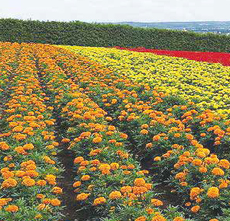 Ethiopia is known for its colourful and fragrant flowers, which it exports to the world. Its horticulture sector is the world’s fifth-largest. But it’s facing a major crisis due to the escalating violence in the northern Amhara region. The conflict, which pits federal troops against local militias, has disrupted the operations of many flower farms, threatening their productivity and profitability. Ethiopia’s flower industry generated over $650 million in revenue in 2022, according to the country’s horticulture association. The bulk of its exports are fresh-cut roses, which are in high demand for occasions like Christmas, and Valentine’s Day in Western countries. Last year, Ethiopia exported millions of kilograms of flowers to the European market during Valentine’s Day alone. The peak season for flower exports runs from December to June. But this year, it may be severely affected by the conflict in the Amhara region, which is home to many flower plantations.
Ethiopia is known for its colourful and fragrant flowers, which it exports to the world. Its horticulture sector is the world’s fifth-largest. But it’s facing a major crisis due to the escalating violence in the northern Amhara region. The conflict, which pits federal troops against local militias, has disrupted the operations of many flower farms, threatening their productivity and profitability. Ethiopia’s flower industry generated over $650 million in revenue in 2022, according to the country’s horticulture association. The bulk of its exports are fresh-cut roses, which are in high demand for occasions like Christmas, and Valentine’s Day in Western countries. Last year, Ethiopia exported millions of kilograms of flowers to the European market during Valentine’s Day alone. The peak season for flower exports runs from December to June. But this year, it may be severely affected by the conflict in the Amhara region, which is home to many flower plantations.
Violence has engulfed the Amhara region since August, when local militants launched a rebellion against the federal government, accusing it of marginalizing and oppressing the Amhara people. The federal troops have responded with a fierce crackdown, resulting in hundreds of deaths and thousands of displacements. The conflict has also disrupted the supply chains, transport networks, and security of the flower farms, forcing many of them to halt or reduce their activities. The Amhara regional government said it had lost up to $45 million, mostly from flower exports, alongside massive layoffs, since the start of the conflict.

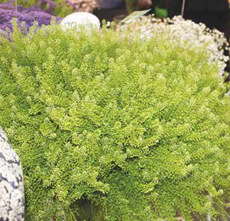 Kenya’s flower industry has long been known for its significant contribution to the global floral export market, primarily centered around the cultivation of roses and other flowers that thrive in the country’s mild and favorable climate. However, there’s currently a noticeable shift occurring within the industry as Kenya embraces the cultivation of summer flowers, marking a promising expansion in its floral portfolio. Thanks to its abundant sunshine and conducive climate, Kenya is now venturing into year-round summer flower cultivation.
Kenya’s flower industry has long been known for its significant contribution to the global floral export market, primarily centered around the cultivation of roses and other flowers that thrive in the country’s mild and favorable climate. However, there’s currently a noticeable shift occurring within the industry as Kenya embraces the cultivation of summer flowers, marking a promising expansion in its floral portfolio. Thanks to its abundant sunshine and conducive climate, Kenya is now venturing into year-round summer flower cultivation.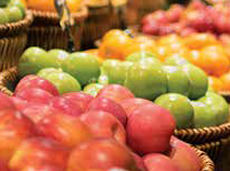 At IFPA’s Global Produce and Floral Show 2023 in Anaheim California, the fresh produce industry gathered to network, learn, inspire and to discuss the state of the fresh produce industry. Globally, the industry faces many challenges at present as weather extremes, geopolitical tensions and the ever-decreasing and more expensive workforce is affecting players along the fresh produce supply chain. Luckily, with the numerous technological innovations and exciting new products being developed, the future remains full of opportunities for the fresh produce industry.
At IFPA’s Global Produce and Floral Show 2023 in Anaheim California, the fresh produce industry gathered to network, learn, inspire and to discuss the state of the fresh produce industry. Globally, the industry faces many challenges at present as weather extremes, geopolitical tensions and the ever-decreasing and more expensive workforce is affecting players along the fresh produce supply chain. Luckily, with the numerous technological innovations and exciting new products being developed, the future remains full of opportunities for the fresh produce industry.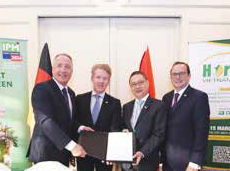 The International Plant Fair is breaking new ground. IPM ESSEN will exclusively take over the marketing of the Vietnamese horticultural trade fair HortEx in the DACH region and other nations. The world’s leading trade fair for horticulture is thus expanding its international network to include another future market. Due to increasing urbanization, the demand for flowers and plants in Southeast Asia is also growing.
The International Plant Fair is breaking new ground. IPM ESSEN will exclusively take over the marketing of the Vietnamese horticultural trade fair HortEx in the DACH region and other nations. The world’s leading trade fair for horticulture is thus expanding its international network to include another future market. Due to increasing urbanization, the demand for flowers and plants in Southeast Asia is also growing. By Erik Runkle
By Erik Runkle The Winchester farm in Kenya’s Nakuru County is the source of some of the most vibrant shades of roses from East Africa, ranging from scarlet red and vivid white to bright yellow bouquets.
The Winchester farm in Kenya’s Nakuru County is the source of some of the most vibrant shades of roses from East Africa, ranging from scarlet red and vivid white to bright yellow bouquets.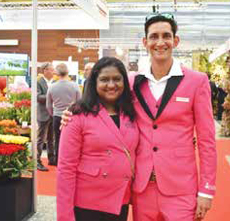 Trials show that Florasys products extends the shelf life of roses by 50-100%, says Chanel Daniel-Swartland, Technical Affairs Manager at Tessara, a company that is one of the industry leaders in Sulphur dioxide generating products used for the preservation of fruits and vegetables. The Florasys products, which are recyclable and free of harmful chemicals, are now commercially available in East Africa and will soon be available in South America as well.
Trials show that Florasys products extends the shelf life of roses by 50-100%, says Chanel Daniel-Swartland, Technical Affairs Manager at Tessara, a company that is one of the industry leaders in Sulphur dioxide generating products used for the preservation of fruits and vegetables. The Florasys products, which are recyclable and free of harmful chemicals, are now commercially available in East Africa and will soon be available in South America as well.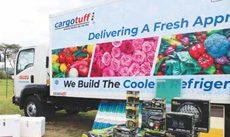 The cut flower industry in Kenya is a thriving sector, with the country being one of the leading exporters of fresh flowers worldwide. The journey of these delicate blooms from Kenyan farms to international markets is a complex and delicate process, where maintaining the cold chain is of paramount importance. This entails the use of temperature-controlled vehicles to ensure that flowers are transported at optimal conditions.
The cut flower industry in Kenya is a thriving sector, with the country being one of the leading exporters of fresh flowers worldwide. The journey of these delicate blooms from Kenyan farms to international markets is a complex and delicate process, where maintaining the cold chain is of paramount importance. This entails the use of temperature-controlled vehicles to ensure that flowers are transported at optimal conditions.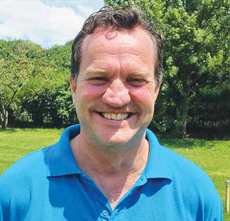 Hamish Ker has been appointed as Andermatt Kenya’s Chief Executive Officer, effective 1st December 2023. “We have an opportunity to help our customers meet the demands of biological solutions and we are excited to welcome Hamish to the team!” the Andermatt team says.
Hamish Ker has been appointed as Andermatt Kenya’s Chief Executive Officer, effective 1st December 2023. “We have an opportunity to help our customers meet the demands of biological solutions and we are excited to welcome Hamish to the team!” the Andermatt team says. The first half of 2023 witnessed a series of pivotal moments that set the course for the future of Africa’s fresh produce export sector. From innovative freight solutions to lifting existing bans, the industry experienced significant events that had a lasting impact on its growth and performance in the years ahead.
The first half of 2023 witnessed a series of pivotal moments that set the course for the future of Africa’s fresh produce export sector. From innovative freight solutions to lifting existing bans, the industry experienced significant events that had a lasting impact on its growth and performance in the years ahead.